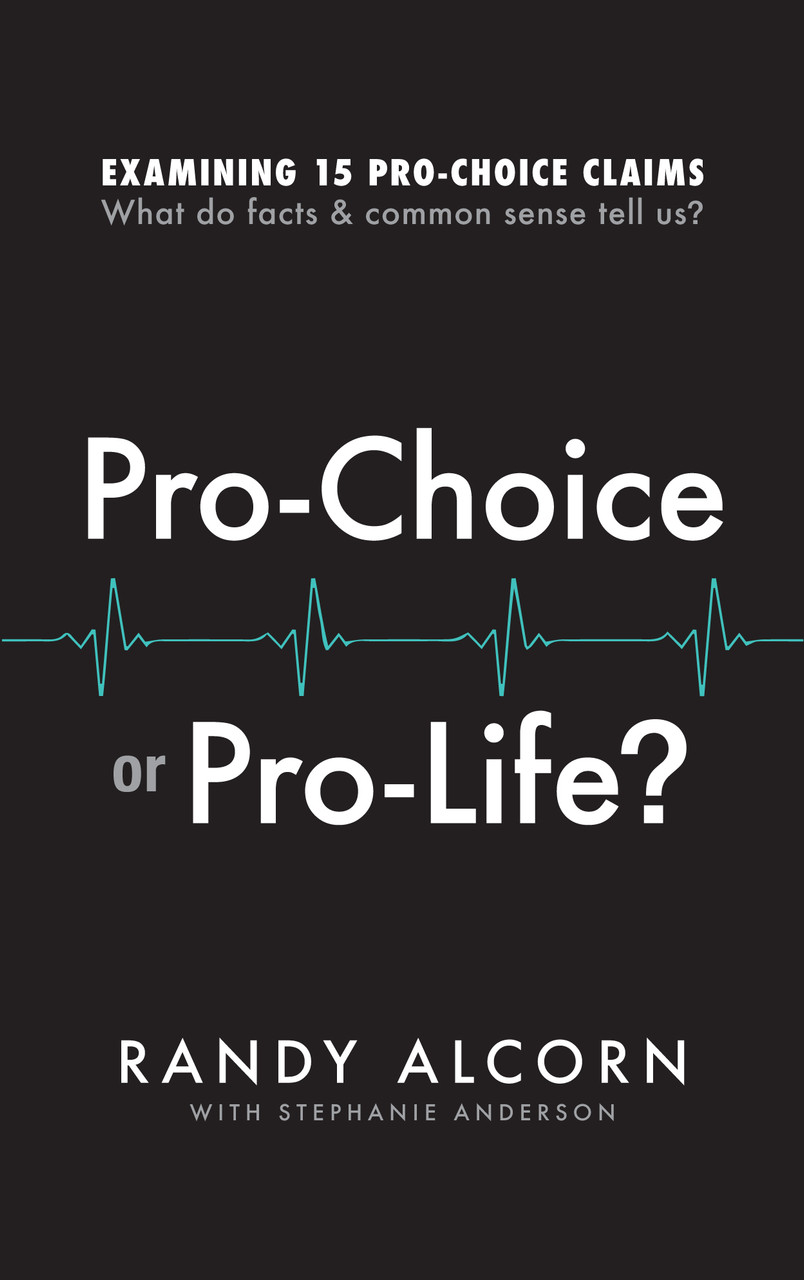Many Christians and even some pastors have told me, “It’s cruel to bring up the subject of abortion.” But by talking about abortion in our churches—with grace and truth—we will prevent abortions and offer forgiveness and healing to women and men who are suffering in silence. Isn’t that an act of kindness both to unborn children and their parents?
Because it will potentially make some people feel bad, would we therefore not talk about adultery, lying, stealing, or the need to share our faith in Christ or abstain from pornography, gossip, and greed? If we knew a number of people in our churches had abused their children, shouldn’t that motivate us to talk about child abuse, rather than not talk about it?
We must stop thinking of abortion as a side issue. Addressing life issues has always been central to the Christian’s calling. Church is more than a social club. We are not here simply to help each other feel good; we are here to help each other be good. And sometimes that means admitting we are sick and taking some medicine we’d rather not take in order to get well. The greatest kindness we can offer each another is the truth, spoken in love (Ephesians 4:15).
Silence Isn’t Grace
The abortion issue isn’t primarily about the church needing to speak to the world. It’s about the church needing to speak to itself first, and then to the world. One out of five American women having an abortion claims to be a born-again Christian. Yet pastors tell me, “I don’t talk about abortion because it will make our people feel guilty, since many have had abortions.”
Isn’t that exactly why we should talk about it? To help men as well as women (since every child has two parents) recognize and deal with their guilt and receive Christ’s grace? And to help others avoid the sin that creates guilt? And to save innocent human lives in the process?
A man at our church, in his 60s, told me of a girl he got pregnant 39 years ago. She asked him to choose what she should do; he chose abortion. It has haunted him ever since. He thinks about the son or daughter whose life he took and wonders about the grandchildren he’d now be holding. He said to me, “Please tell people about the consequences. Warn our young men—tell them God will hold them accountable for what they do with their children.” Then he broke down in tears and said, “I don’t want any of our young men to do what I did 39 years ago.” I will never forget that heart-wrenching conversation. Nor will I forget my many conversations with women wracked by the pain and guilt of abortions no one attempted to talk them out of.
Many have experienced God’s forgiveness and profound healing after abortions. Those who suffer most are those who do not face the truth. Deep inside they know it, their consciences accuse them, and they often pursue self-destructive behaviors. Our silence isn’t grace—it’s cruelty. As Scott Klusendorf points out, “When we fail to equip our churches on abortion, we don’t spare people guilt; we spare them healing.”
Michael Spencer, founder and president of Project Life Voice, says, “We often will hear this objection that speaking out as a pastor will only inflict greater pain on those who have had abortions. …I think the fear of inflicting greater pain on those who’ve had abortions is a legitimate pastoral concern. It was for me when I was actively pastoring, and I think it should be for every pastor. But nothing inflicts greater pain than pulpit silence.” Michael also says, “When the pulpit goes silent, we communicate one of two messages, and both are regrettable: abortion is not so bad, or the gospel is not so good.” (Hear more in this podcast episode.)
Just Another Political Issue?
Almost no topic is as guaranteed to offend some church members as abortion. I well remember at my home church, one of the most prolife churches I know of, how certain people would stay home from church whenever they knew one of us were going to speak on abortion. Pastors may also be concerned about being called partisan and further dividing their congregations politically.
But long before it was ever a political issue, abortion was a moral issue, and one which God has a clear and emphatic position on. It has everything to do with the worth of a human child. (I encourage you to take a look at what God’s Word says about unborn children, and what the people of God throughout history have said about abortion.) If today I were to jump in front of a car to remove a child from its path, it would not be to lodge a political protest against reckless driving. It would be to save the life of an innocent child. Abortion first became “political” when the law was changed to justify the killing of children. If killing one-month-old children were made legal—which Princeton ethics professor Peter Singer actually advocates—that too would be a political issue, but first and foremost it would remain a moral and biblical issue.
We’re not dealing here with “one more social/political issue.” We’re dealing with a unique and focused evil in which Satan has deeply vested interests. There are demonic forces behind child-killing. Abortion is Satan’s attempt to kill God in effigy by destroying the little ones created in God’s image. We can’t afford to simply look away or sweep this issue under the rug.
Michael Spencer says, “We have children missing every Christmas from most of our local churches, children that ought to be there for the Christmas drama... but in many cases they’re not there because they were aborted five, six, seven years earlier, in many cases with the silent approval of their church. This should not be a controversial or divisive issue in the church.”
I was a pastor for fourteen years and some of my closest friends are pastors. I know that pastors can’t address every important subject all the time. But what could be more important than whether children’s lives are taken or saved? Some pastors and churches take far bolder stands against other issues than they do abortion. Martin Luther said this, and while it’s worth contemplating about other issues too, it certainly includes abortion:
If I profess with the loudest voice and clearest exposition every portion of the truth of God except precisely that little point which the world and the devil are at the moment attacking, I am not confessing Christ, however boldly I may be professing Christ. Where the battle rages, there the loyalty of the soldier is proved. And to be steady on all the battle fields besides is merely flight and disgrace if he flinches at that point.
A Challenge to Pastors
January 17, 2021 is Sanctity of Human Life Sunday. Certainly, pastors and church leaders have faced an abnormal number of pressures in the past year due to COVID, political divisions, and societal unrest over racial justice and other issues. But despite the obstacles, I plead with them to not play it safe, to not be people pleasers, and to not fail to speak prophetically into people’s lives on the issue of abortion. “Speak up for those who cannot speak for themselves, for the rights of all who are destitute. Speak up and judge fairly; defend the rights of the poor and needy” (Proverbs 31:8-9). Don’t skip this important date and miss the opportunity to speak the truth in love about abortion!
Phillip Bethancourt writes, “Sanctity of Life Sunday is not a distraction from the mission of the church. Instead, the New Testament calls the church to be a people who manifest the kingdom through our words and works. We long for the redemption of hearts and the restoration of communities. When the church cares for widows, orphans and the vulnerable, it’s following the way of Christ for the sake of our culture.”
 There are many free quality resources available to help pastors. Here are my notes from a past Sanctity of Human Life Sunday message. My new book Pro-Choice or Pro-Life: Examining 15 Pro-Choice Claims—What Do Facts & Common Sense Tell Us? is free online. Print copies can be purchased for a low cost for churches that would like to make the book available to their members. One person could provide a copy to be distributed free to everyone in his church. Please ask God if He would have you do that. (Trust me, our ministry isn’t making money on these books, nor do we desire to.)
There are many free quality resources available to help pastors. Here are my notes from a past Sanctity of Human Life Sunday message. My new book Pro-Choice or Pro-Life: Examining 15 Pro-Choice Claims—What Do Facts & Common Sense Tell Us? is free online. Print copies can be purchased for a low cost for churches that would like to make the book available to their members. One person could provide a copy to be distributed free to everyone in his church. Please ask God if He would have you do that. (Trust me, our ministry isn’t making money on these books, nor do we desire to.)
Care Net offers a free Sanctity of Human Life Sunday kit for pastors, including a one-page guide to Crafting A Sanctity of Life message, a pastor’s executive summary on the latest facts and statistics about abortion, a video explaining how members of your church can get involved in their local pregnancy center, and more.
Let’s Model Showing Grace and Truth
I’ve personally seen joy and peace in the lives of many women (and men) who’ve had an experience of forgiveness after their abortions and many women who, as a result of intervention, spared the lives of their children.
Sometimes showing grace requires silence. Other times it requires speaking up. We should help women with unwanted pregnancies who feel pressured toward abortion see that abortion will hurt them, not help them. We should also love women who’ve had abortions and do all we can to help them recover from abortion’s trauma. And certainly, we should do what we can to help children saved from abortion, after they are born.
When it comes to abortion and every other moral issue, we show people Jesus only when we show them both grace and truth. May churches and their pastors heed God’s call to offer people both.




